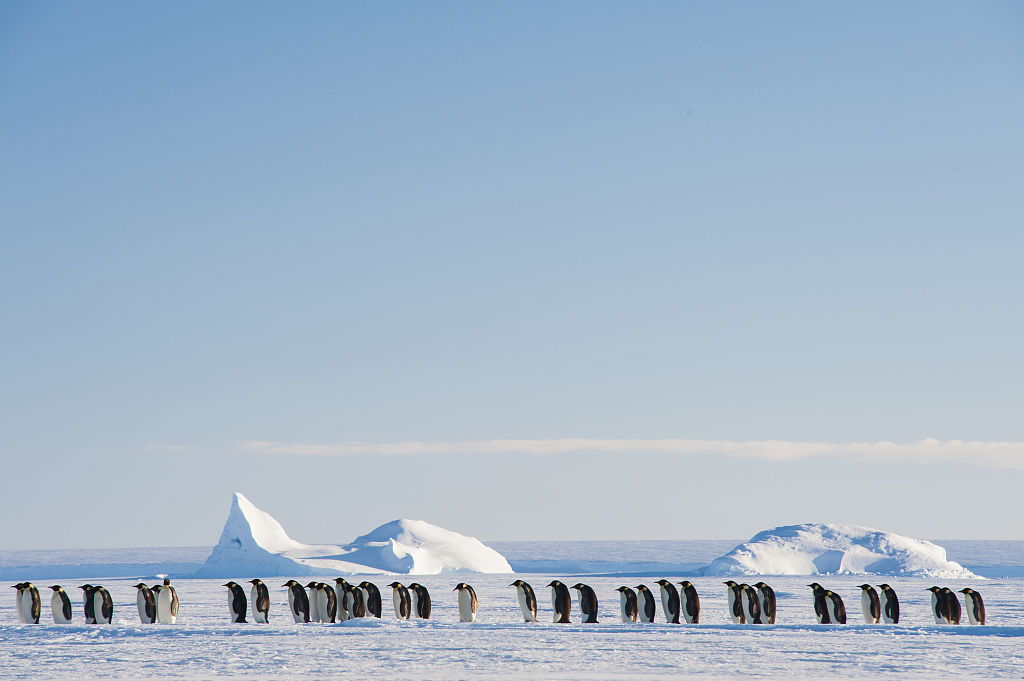Satellite imagery has uncovered 11 new colonies of Emperor penguins in Antarctica, according to new research Wednesday that suggests the global population is up to 10 percent bigger than previously thought.
Emperor penguins, which are particularly vulnerable to climate change, are difficult to study because their habitat in Antarctica is extremely remote and temperatures can drop to minus 50 degrees Celsius.
Since the flightless birds themselves are too small to be seen from satellites, the British Antarctic Survey (BAS) used images from the Copernicus Sentinel-2 observation program to track penguin guano – their poo.
These revealed the additional 11 colonies, bringing the total colony count on the whole continent to 61, according to the study published in Remote Sensing in Ecology and Conservation.
Lead author Peter Fretwell, a geographer at BAS, described the discovery as "exciting."
But he cautioned that since the colonies are small they only increase the global population by between 5 and 10 percent, or around 265,500 to 278,500 breeding pairs.

Emperor penguins. /VCG
Shrinking habitat
Warming ocean waters are melting the sea ice where Emperor penguins live and breed.
The researchers said that most of the newly found colonies are in locations that could disappear as a result of climate change.
"Birds in these sites are therefore probably the 'canaries in the coalmine' – we need to watch these sites carefully as climate change will affect this region," said Philip Trathan, head of conservation biology at BAS.
Last year another survey from BAS discovered that the second largest Emperor penguin colony on Earth had suffered a "catastrophic" breeding failure as their habitat dwindles.
The Halley Bay colony in the Weddell Sea due south of Cape Hope, normally sees up to 25,000 penguin pairs mate each year.
But in 2016, when abnormally warm and stormy weather broke up the sea-ice on which the penguins normally raise their young, almost all the chicks died. This pattern was repeated in 2017 and 2018.
A nearby penguin colony had increased in size, however, indicating that many of the Halley Bay birds had migrated to safer breeding conditions.
Emperors, the world's largest penguin species, came to global fame with a 2005 documentary, "March of the Penguins," portraying their annual trek across the icy wastes, and the 2006 cartoon movie "Happy Feet."
But their population, centered around Earth's extreme south, is set to decline up to 70 percent by the end of the century as the planet continues to warm.
A study in 2015 recommended the birds be added to an international "Red List" of endangered species.
(Cover image via VCG)
(If you want to contribute and have specific expertise, please contact us at nature@cgtn.com.)








 User Center
User Center My Training Class
My Training Class Feedback
Feedback












Comments
Something to say?
Log in or Sign up for free